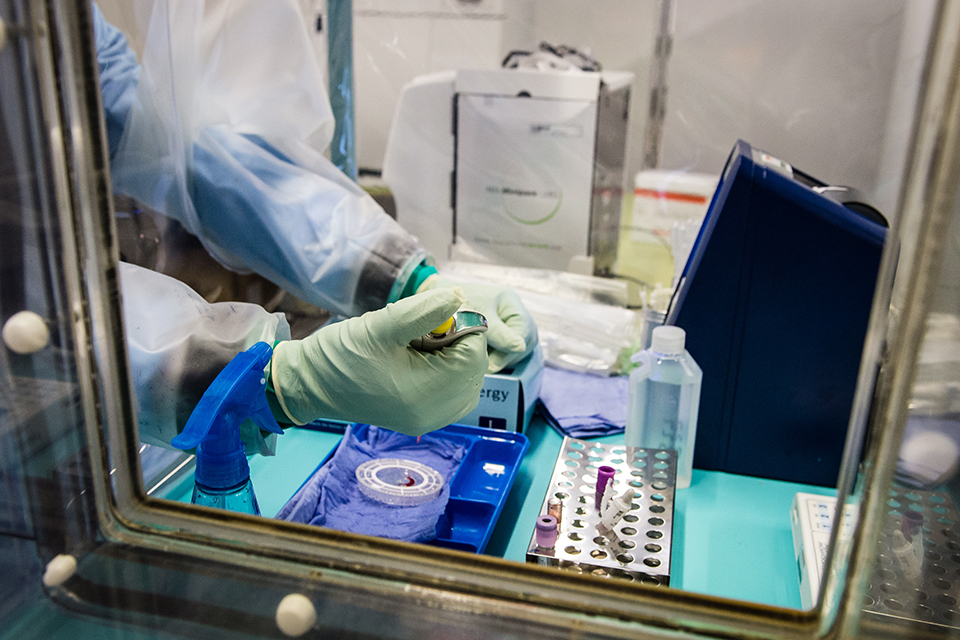
SPEEDING THE FIGHT AGAINST EBOLA
The urgency of Ebola crisis in West Africa has forced medical experts to explore new ways to bring the epidemic under control. In a dispatch from Sierra Leone for The Economist, Pulitzer Center grantee Amy Maxmen, notes that when even the most promising drugs and vaccines are months away from widespread use for patients, doctors must improvise.
"One potential cure is available in great quantities—the blood of survivors. On December 8th the first clinical trials of blood transfusions started in Sierra Leone," Amy reports.
"The experiment is led by local doctors, who say they can no longer bear to sit by as countrymen succumb to the disease," she writes. "If the blood trials show a benefit, the therapy could be scaled up fairly fast—without having to pass through the regulatory process and price negotiations involved with pharmaceuticals."
Elsewhere in Sierra Leone, grantee Erika Check Hayden is looking at the contribution of another group of Ebola survivors—nurses who are caring for other victims.
"Their job—inserting intravenous lines into patients' veins to deliver hydration and medicine—carries a high risk of exposure to Ebola through patients' blood. But the survivor nurses, wearing full protective gear, are thought to be immune to re-infection with Ebola, so they've taken on this potentially dangerous task," writes Erika in a piece for Wired.
As one nurse explained to Erika, "We want to save lives as they did to us."
FOOD SECURITY AND CORPORATE PROFITS
In a story for the Des Moines Register, Pulitzer Center grantee Phil Brasher reports from Ethiopia that the Obama Administration is counting on an unusual mix of taxpayer dollars and investments from profit-hunting agribusiness giants such as DuPont to feed the globe's growing population.
Called "Feed the Future," the program is controversial. "Critics say the administration had no business enlisting the private sector," Phil writes. On the other hand, he notes that US corporate investment "is providing a modest counterweight to the billions of dollars that China is investing in Africa though the financing and construction of major infrastructure projects."
Meanwhile, Amy Maxmen (who has been covering a lot of ground in Africa) also reports from Ethiopia on a different approach to food security—focusing on traditional agriculture instead of converting to the monocrops promoted by corporations.
"If diversity is the key to small farmers' survival, the question becomes how to make their native way of life economically viable," Amy writes in Newsweek. "Researchers suggest the solution is to better integrate native crops into the market—that way they could garner a profit on top of feeding families."
Until next week,
Tom Hundley
Senior Editor

The current Ebola outbreak has been seen through the lens of terror and failure, but the untold...






